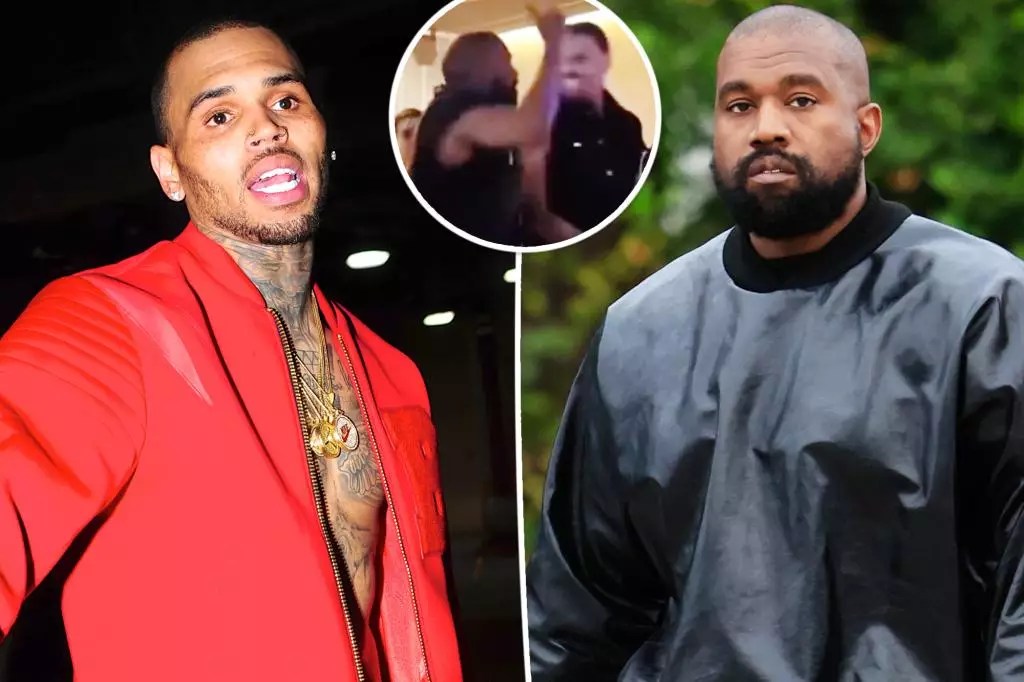Kanye West, once again, finds himself in hot water due to his recent antisemitic remarks. A video clip circulating on social media shows the rapper enthusiastically rapping along to his new song “Vultures,” featuring Ty Dolla $ign. In the song, West controversially states, “How I’m anti-semitic? I just f—ked a Jewish bitch.” This lyric has sparked outrage and backlash from both the Jewish community and concerned individuals worldwide.
As the video spread, not only Kanye West but also other artists present, including Chris Brown, Ty Dolla $ign, and Bump J, faced severe criticism. Jewish businesswoman Tanya Zuckerbrot expressed her disgust on Instagram, questioning, “What’s more sickening? The lyrics… Or the fact that both Kanye West and @chrisbrownofficial find it hysterical?” Others echoed her sentiments, labeling the lyrics and the artists’ reactions as “sick,” “masochistic,” and “antisemitic.” Social media users called for consequences, with some suggesting that West and Brown should never work in the music industry again.
This incident is not Kanye West’s first encounter with antisemitism accusations. Just a year ago, he faced significant consequences after going on multiple antisemitic tirades. He was dropped from his contracts with Adidas and Balenciaga, faced restrictions on his social media accounts, and even had his MRC-produced documentary scrapped. These actions came after West expressed his antisemitic views on Twitter, proclaiming that he would go “death con 3 on Jewish people.” In a subsequent interview with Piers Morgan, he unapologetically stood by his remarks, stating that he fought fire with fire.
Chris Brown’s involvement in the controversial song further complicates matters. The artist has a controversial history of his own, most notably for brutally assaulting Rihanna in 2009. Despite ongoing legal issues, Brown’s affinity for West’s song does not bode well for his public image. This collaboration raises questions regarding Brown’s personal growth and whether he truly understands the consequences of aligning with an artist known for his antisemitic views.
The outrage surrounding Kanye West’s recent lyrical choice reinforces the urgent need for accountability within the entertainment industry. As the public becomes increasingly conscious of harmful rhetoric and bigotry, fans and consumers are demanding action. The cancellations and repercussions faced by West should serve as a warning to all artists that offensive and discriminatory behavior will not be tolerated.
Kanye West’s latest bout of antisemitic remarks has ignited widespread concern and condemnation. The controversial lyrics, coupled with his history of antisemitism, have reignited the call for accountability within the music industry. Furthermore, Chris Brown’s collaboration with West raises concerns about his own personal growth and understanding of the consequences associated with associating with problematic figures. As society becomes more attuned to the impact of harmful rhetoric, it is crucial that artists and entertainers take responsibility for their words and actions, and actively work towards creating a more inclusive and tolerant environment.


Leave a Reply